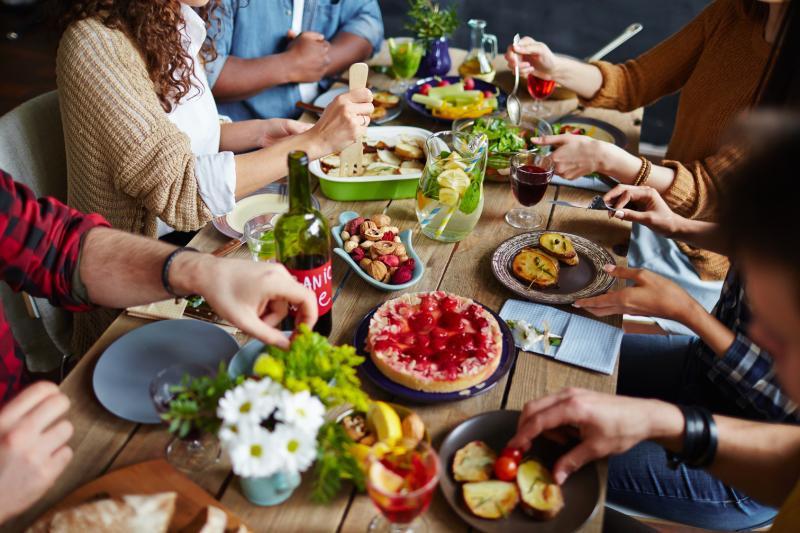
Eating alone may help in weight management as findings of a recent study suggest that eating with friends lead to higher food intake.
“Research suggests that people tend to eat more when eating with other people, compared with when they eat alone, and this is known as the social facilitation of eating,” the investigators said.
A systematic review was carried out on studies that used experimental and nonexperimental approaches to examine food intake/choice as a function of the number of co-eaters. The investigators searched the databases of Embase, Medline, PsychInfo and Social Sciences Citation Index. Studies that used naturalistic techniques were narratively synthesized, and meta-analyses were conducted to synthesize results from experimental studies.
Forty-two studies met the eligibility criteria. There was strong evidence suggesting that people select and eat more in the company of other people as compared with when they eat alone (Z=5.32; p<0.001; standardized mean difference [SMD], 0.76, 95 percent CI, 0.48–1.03).
In the meta-analysis, no evidence was found for social facilitation across studies examining food intake when participants ate alone or with strangers/acquaintances (Z=1.32; p=0.19; SMD, 0.21, –0.10 to 0.51).
Some evidence suggested that gender, weight status and food type moderated the social facilitation of eating, but this evidence was limited by a lack of experimental research examining the moderating effect of these factors on the social facilitation of eating among friends.
Additionally, two studies presented evidence that longer meal durations and the perceived appropriateness of eating might partly mediate the effect of the social context on eating.
“The review identifies potential mechanisms for the social facilitation of eating and highlights the need for further research to establish mediating factors,” the investigators said. “Finally, we propose a new theoretical framework in which we suggest that the social facilitation of eating has evolved as an efficient evolutionary adaptation.”